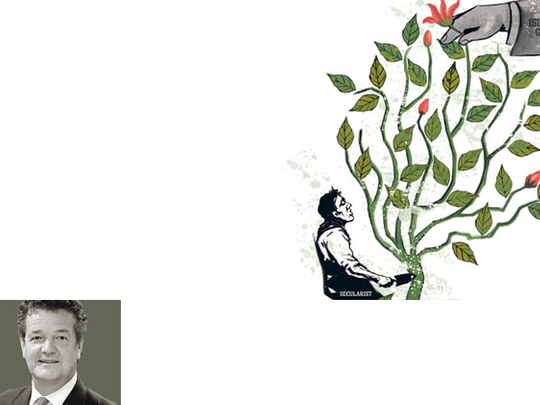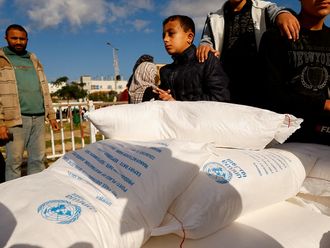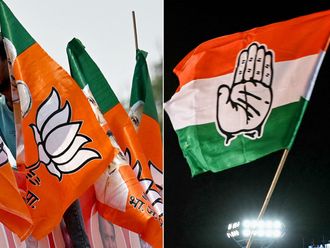
After the excitement of the revolutions of 2011, the Middle East is settling into a new reality that is very different from what people were expecting in the heady first months of the Arab Spring when anything seemed possible.
The uprisings in different countries were led by young secular Muslims who wanted a more open society, and as the long-established dictatorships fell in Tunisia, Egypt and Libya, many Arabs noticed that it was not the Islamists that had lead the charge to the streets. For decades, the sole alternative to the military establishments of the Arab republics had been the Islamist option, but the Arab Spring offered a new way which was much more in tune with the times.
But the secularists failed to convert their enthusiasm into political organisations, and lost out to more coherent groups, leaving the way open for the Islamists to suddenly embrace constitutional politics and achieve an unexpected grip on power.
The result is that in 2012, Tunisia, Egypt, and Libya will see three very different attempts to build new governments. Tunisia leads the way with its relatively homogenous population accepting the new moderately Islamist government, and the outlook is for calm being restored fairly quickly.
As with so many Islamist parties, Al Nahda's challenge is not so much about its social policies which are very clear, but whether it is up to revitalising the stalled economy, reforming education to meet the 21st century requirement for people trained to think for themselves, and fully incorporating women into the workforce and public life of the country.
The same questions will dominate in Egypt, where a new and much more strident Islamist parliament than Tunisia's will have to find a working accommodation with the military which is clinging on to power. A new civilian president will be elected early in 2012, and will be caught in the middle of these two major forces.
Attempts to resolve this triangle of power will dominate Egypt's politics all year, leaving no room for economic or social development. The secular liberals who famously launched Egypt's revolution and occupied Tahrir Square and the TV stations around the world have failed to win power, but they will continue to protest on the streets, trying to remain the conscience of their revolution.
Libya faces an uncertain future in 2012 as the new government will try to gain control over the militias which have not yet disarmed after the fall of Gaddafi. An uncertain start in 2011 will make it a lot harder in 2012 for the new government to implement its policies, although it will be helped by the international community unlocking the billions of Libya's oil wealth which had been sequestered around the world during the fighting.
Difficult 2012
Two countries face a very difficult 2012, as Syria and Yemen finally experience their Arab Spring. But so many uncertainties surround the new government in Yemen that complete failure along the lines of Somalia is a real possibility, although the Gulf Cooperation Council will work as hard as it can to avoid such a fate for one of its close neighbours.
Bashar Al Assad's government in Syria seems determined to hang on to power at all costs. This was made all too obvious last week when the government massacred more than 110 people on the day that the Arab League's plan for the end of violence was supposed to start.
During 2012, the previously disjointed Syrian opposition will probably become more organised but it has a long way to go before it can offer a serious challenge to the government. This vacuum gives the Syrian military plenty of opportunity to hit back severely and retain control of the country, despite the brave words of the Arab League's plan.
The broad stability that most Gulf states managed all through the regional turbulence of 2011 looks set to continue. Of all the six states, Bahrain experienced the most protests, as its Shiite opposition took to the streets. The judicial enquiry commissioned by the king has bought some space for a dialogue to restart in 2012 although tensions remain high.
The GCC summit made a point of emphasising the six states' collective concern to maintain their stability when Saudi Arabia's King Abdullah Bin Abdul Aziz spoke out firmly on the need to prevent Iranian interference in their internal affairs.
King Abdullah's warning has to be seen in the context of dangerous escalation during 2012 of the confrontation with Iran over its nuclear programme. The clash between Iran on one side, and the US and its international allies is due to become a lot more vicious as the leaders on both sides will play to their domestic audiences, offering very little room for compromise or rational discussion.
Iranian President Mahmoud Ahmadinejad has a parliamentary election in March 2012, and a presidential election in 2013. He is set to take a firmly nationalist position to seek electoral advantage and hide his dismal economic record. The Iranian shooting down of a US drone, and storming of the British embassy in Tehran, are only the start of what will be an increasingly turbulent year.
On the American side, President Barack Obama also faces a presidential election in November 2012, and there will be no votes from American voters for making peace with Ahmadinejad. Obama will want to use the confrontation with Iran to emphasis his ability to run a tough foreign policy, and deny any Republican charges of weakness.









